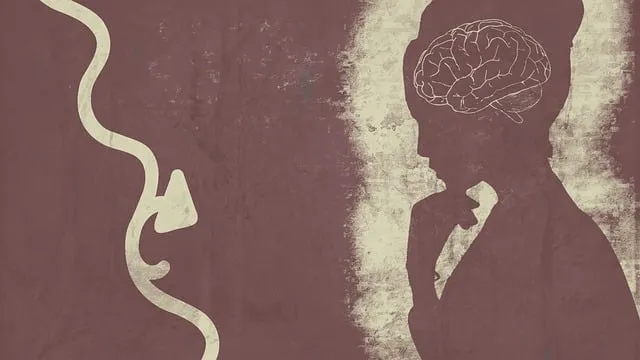Effective mental wellness group facilitation at Kaiser Permanente centers in Boulder hinges on creating inclusive environments, leveraging active listening, employing Mind Over Matter principles, integrating compassion cultivation practices, and fostering peer support. Positive Kaiser Permanente mental health center reviews Boulder underscore these techniques' importance for successful, safe, and supportive therapeutic processes.
At the Kaiser Permanente mental health center in Boulder, facilitators play a pivotal role in fostering inclusive and supportive group environments. This article explores essential techniques for effective mental wellness group facilitation. We delve into understanding group dynamics, engaging participants with inclusive strategies, and mastering active listening to promote open communication. By examining these key aspects, we aim to equip facilitators with tools to create a nurturing space where peers can connect and support one another, mirroring the positive impact often noted in Kaiser Permanente mental health center reviews Boulder.
- Understanding Group Dynamics for Effective Facilitation
- Engaging Participants: Strategies for Inclusive Mental Health Groups
- The Art of Active Listening in Facilitating Supportive Conversations
- Techniques to Foster Open Communication and Connection Among Peers
Understanding Group Dynamics for Effective Facilitation

Understanding group dynamics is paramount for facilitators at Kaiser Permanente mental health centers, such as those in Boulder, to ensure effective support. Group therapy environments are complex, with each individual bringing their unique experiences, perspectives, and needs. Facilitators must navigate these complexities, fostering an inclusive and safe space where every member feels heard and respected. This involves recognizing power dynamics, encouraging active participation, and promoting open communication.
By understanding the group’s emotional landscape, facilitators can address potential issues like mental illness stigma reduction efforts or trauma support services. They can guide discussions, facilitate problem-solving, and help members build on each other’s insights. Effective facilitation techniques are especially crucial given the Risk Assessment for Mental Health Professionals, ensuring that both facilitators and participants engage in a therapeutic process that is beneficial and secure.
Engaging Participants: Strategies for Inclusive Mental Health Groups

Creating an inclusive environment is key to effective mental wellness group facilitation. Engaging participants from diverse backgrounds and experiences requires a nuanced approach that respects individual differences and encourages active participation. At Kaiser Permanente mental health centers in Boulder, reviews consistently highlight the importance of fostering a safe and supportive atmosphere. Facilitators can employ several strategies to achieve this: start with clear communication about group goals and expectations, ensuring everyone feels heard and valued. Incorporating interactive activities and diverse discussion topics can help break the ice and create a sense of community.
Additionally, leveraging Mind Over Matter principles can empower members to take ownership of their mental health journeys. Teaching participants effective coping mechanisms and mood management strategies through interactive workshops and group exercises enhances their ability to navigate challenges. Given the sensitive nature of mental health discussions, facilitators must also conduct thorough risk assessments for all members, implementing necessary safety protocols as recommended by mental health professionals. This ensures that the group remains a sanctuary for open communication and personal growth.
The Art of Active Listening in Facilitating Supportive Conversations

In the supportive conversations facilitated at Kaiser Permanente mental health centers, such as those in Boulder, active listening is a powerful tool. It goes beyond mere hearing; it involves fully concentrating on the speaker’s words and emotions, then empathetically reflecting back what has been said. This technique builds trust and encourages open dialogue, fostering an environment where individuals feel understood and validated. In a review of Kaiser Permanente mental health center reviews Boulder, clients often highlight the importance of this empathetic connection with their facilitators.
Cultural sensitivity in mental healthcare practice is integrated into active listening. By recognizing and appreciating individual cultural backgrounds and perspectives, facilitators can adapt their communication styles to better serve diverse populations. This approach not only promotes inclusivity but also enhances resilience building, a key aspect often discussed in burnout prevention strategies. Through these culturally sensitive practices, mental wellness group facilitation becomes more effective, ensuring every participant feels supported on their journey towards improved mental health.
Techniques to Foster Open Communication and Connection Among Peers

In facilitating mental wellness groups at a Kaiser Permanente mental health center in Boulder, one of the most effective techniques to foster open communication and connection among peers is through Compassion Cultivation Practices (CCP). These practices encourage group members to actively listen, empathize, and understand each other’s experiences, creating a safe space for vulnerability. By cultivating compassion within the group dynamic, participants can build stronger bonds, enhance their emotional intelligence, and develop a deeper sense of community support, all of which are key aspects reviewed positively in Kaiser Permanente mental health center reviews Boulder.
Additionally, integrating Self-Care Practices and Inner Strength Development activities helps group members recognize and prioritize their well-being. These practices promote self-awareness, resilience, and coping mechanisms that enable individuals to navigate challenges with greater ease. Through shared experiences and the exchange of strategies, peers gain valuable insights and strengthen their support networks, further enriching the group’s overall mental wellness journey.
Mental wellness group facilitation is a powerful tool, as evidenced by successful programs at Kaiser Permanente mental health centers in Boulder. By understanding group dynamics, employing inclusive strategies, actively listening, and fostering open communication, facilitators can create supportive environments that enhance peer connection. These techniques not only improve individual mental health but also contribute to a vibrant community of support, reflecting the importance of group facilitation in modern wellness practices.






